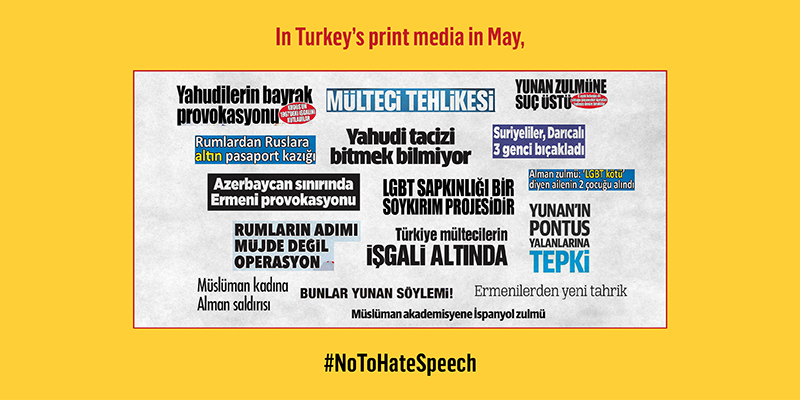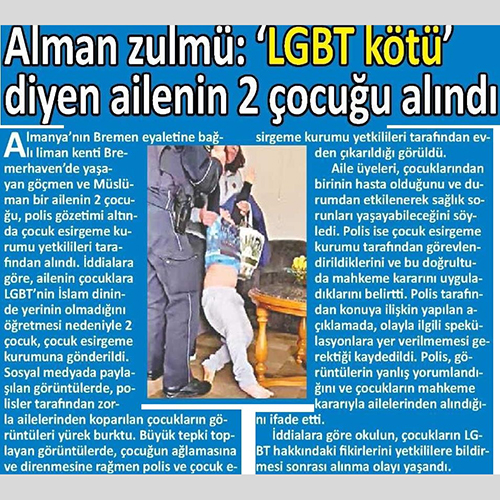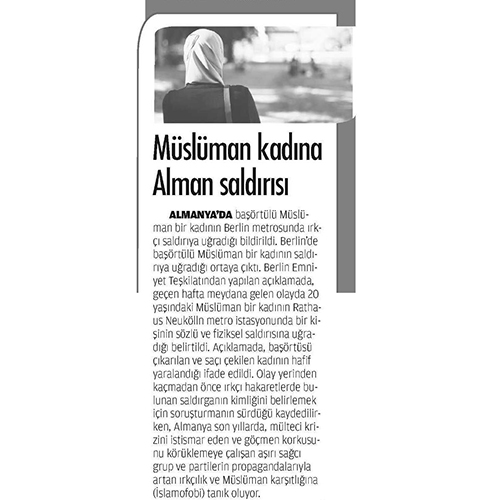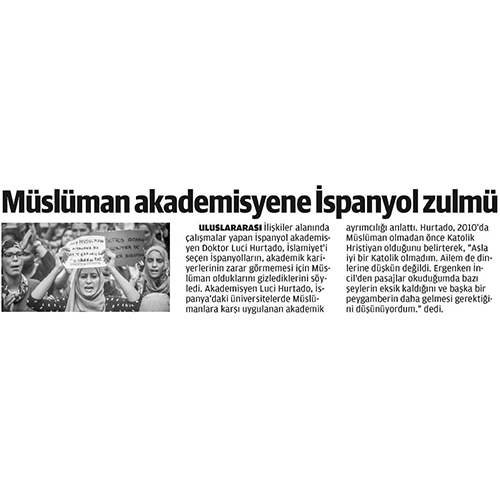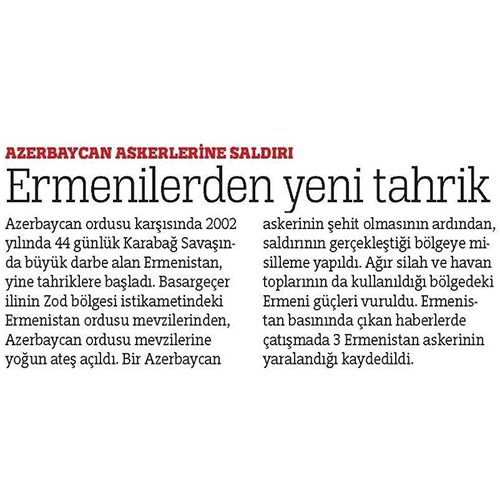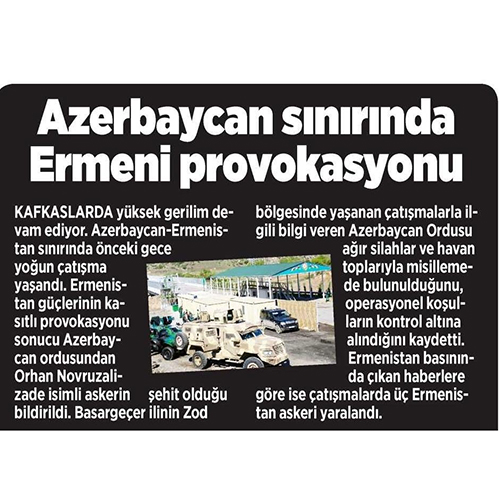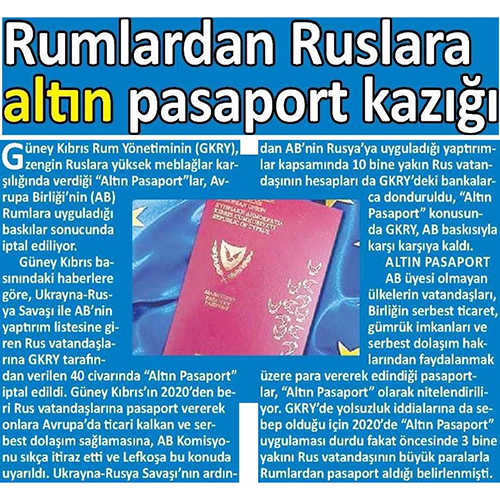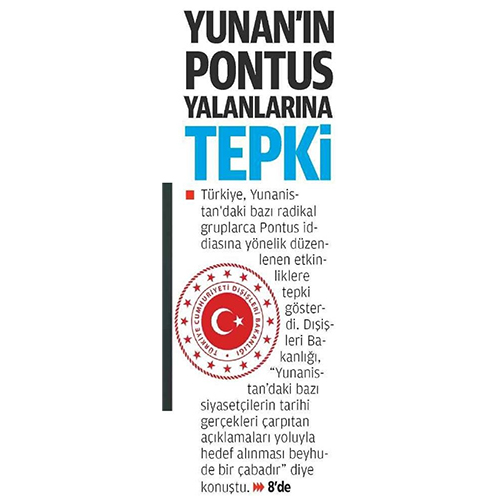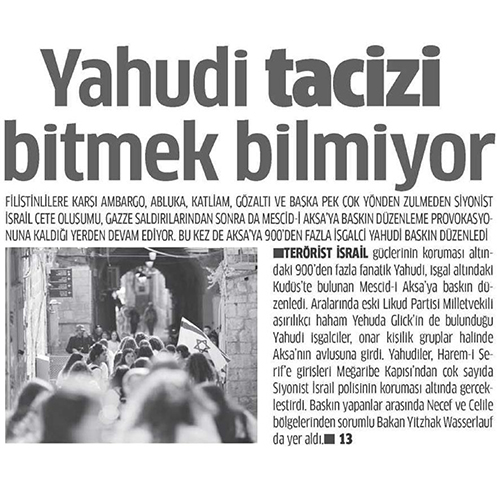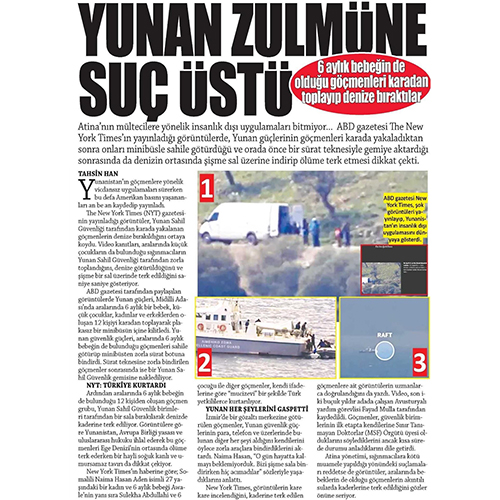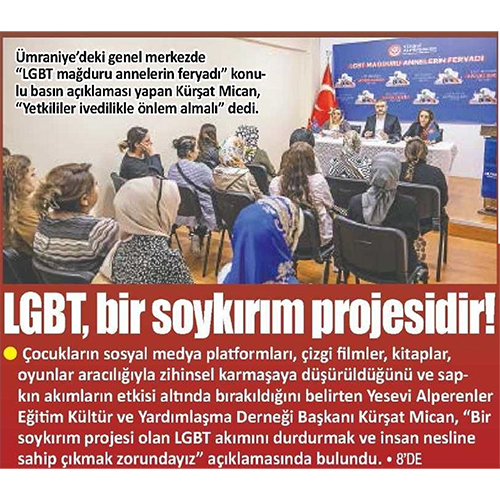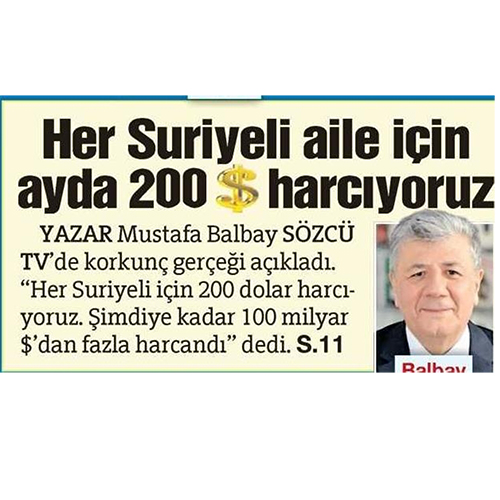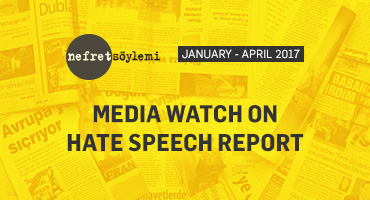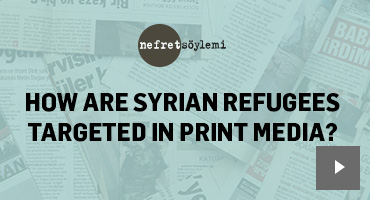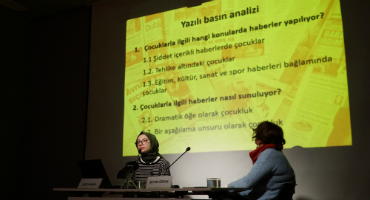Using critical discourse analysis, we evaluated news articles and columns that were published in Turkey’s national and local press in May 2023 that targeted national, ethnic, and religious identities, LGBTI+s. You may access news clippings and detailed analysis at “Hate Speech in the Press: Our Selections from May”.
In Turkish print media within the month of May;
- German identity was associated with aggression and held responsible for acts of violence in Germany.
- In news reports on the passport practices of the Southern Cyprus and its relations with the Northern Cyprus, Greek Cypriots (Rum) identity was disparaged.
- Greek identity was targeted in news articles regarding the Greek state’s policies towards immigrants and the Pontus Genocide Memorial Day.
- Refugees are targeted by hate speech by creating the perception that refugees pose a threat to social order and associating them with crime.
- In news articles on the conflict between Armenia and Azerbaijan, Armenian identity was disparaged, reinforcing prejudice and hostility towards them.
- Jewish identity was held responsible for the acts of a group of people through negative references and was labeled as aggressive.
|
1 May 2023
|
1. Yeni Akit, “German cruelty: ‘2 children taken from family who said ‘LGBT is bad’” This article relates the removal of two children from their families by the police after a court decision in Bremen, Germany after the family allegedly told their children that LGBTI+ people do not belong in the religion of Islam. In the headline, the responsibility of the incident in question is attributed to German identity and Germans are associated with violence with the phrase cruelty. As such, existing prejudices against Germans are reinforced. |
|
2 May 2023
|
2. Milat, “German attack on Muslim woman" This article cites the statement of the Berlin Police Department regarding an incident of a Muslim woman wearing a headscarf in Germany being subjected to a racist attack on the subway. While the incident in question is stated in the title, the responsibility of the action is connected to German identity, which is associated with aggression and labeled as a threat. As such, existing prejudices against Germans are reinforced. |
|
|
3. Aydınlık, “THE GREEK CYPRIOT MOVE ISN’T GOOD NEWS, BUT AN OPERATION" |
|
|
4. Gerçek Volkan, “THESE ARE GREEK VIEWPOINTS” This article related a statement made by an advisor of a politician on the government's Cyprus policy. The advisor's statement, that Turkey should not interfere in the internal affairs of Turkish Cypriots and that a solution should be found between the two communities on the island is criticized by an academician, who explains that such a comment will pose a threat to the TRNC and Turkish Cypriots. In the headline of the article, the statements of the academician are conveyed without quotation marks and Cypriot Greek (Rum) identity is targeted. Hate speech is produced through the disparaging use of identity and the existing perception of hostility towards Greeks is reinforced. |
|
|
5. Milat, “Spanish cruelty to Muslim academician” This article cites an academician's statements about the discriminatory practices faced by Muslim academicians in Spain. In the statement, the academician claims that Muslim academicians conceal their identities in Spain in order not to harm their academic careers. While that statement is conveyed in the article’s headline, Spanish identity is targeted by being associated with cruelty. As such, Spaniards are labeled as aggressors and existing prejudices against them are reinforced. |
|
|
6. Türkiye, “New provocation from Armenians" This article reports on clashes that broke out between the armies of Armenia and Azerbaijan in the border region of Zod. The article reminds the reader of the previous Karabakh War between the two countries, associates Armenians with ‘provocation’ and creates a continuity between the two events with the use of the word ‘again’. In the headline, the responsibility of the tension between the two countries is placed on Armenians. As such, Armenians are presented as a threat and existing prejudices and perceptions of hostility towards them are reinforced. |
|
|
7. Diriliş Postası, “Armenian provocation on the Azerbaijan border" This article also reports on the conflict between the armies of Armenia and Azerbaijan in the border region of Zod. The article conveys the statement of the Azerbaijani army, that one Azeri soldier lost his life, and with reference to the Armenian press, that three Armenian soldiers were also injured. However, Armenian identity is held responsible for the tension between the two countries, with Armenians disparaged in the headline of the news. The current perception of hostility towards Armenians is thus reinforced. |
|
|
8. Yeni Akit, “Greek Cypriots scam Russians with golden passports” The article reports on the European Union's objection to the "Golden Passports" given to Russian citizens by Southern Cyprus in return for high payments, and the subsequent cancellation of those passports. In the headline, the responsibility of the incident in question is linked to Greek Cypriot (Rum) identity. As such, existing prejudices against the Greek Cypriots are reinforced. |
|
|
9. Milat, “REACTION TO GREEK LIES ABOUT THE PONTUS” This article cites the statement made by the Turkish Ministry of Foreign Affairs after a group organized an event in Greece commemorating the Pontic Genocide on May 19th. While the ministry's statement that historical events have been distorted and fabricated is conveyed, identity is also targeted in the wording of the headline. As such, existing prejudices and hostility towards Greeks are reinforced. |
|
|
10. Yeni Devir, “Jewish harassment never ends” This article reports on a group raid on the Al-Aqsa Mosque in East Jerusalem. The article states that the embargo and blockade were carried out by a group of Zionist Israel gangs. However, the responsibility for the acts of violence alleged to have been committed by a group as stated in the headline, is placed on the identity. Jews are associated with harassment and aggression and a discourse of hostility towards Jewish identity is produced. |
|
|
11. Yeni Akit, “GREEK CRUELTY CAUGHT RED-HANDED” The article reports on the New York Times publication of images of Greek Coast Guards violating the rights of immigrants. In the headline, responsibility of Greece's refugee policies is attributed to Greek identity, which is associated with violence. It is also reported that the migrants were rescued by the Turkish Coast Guards. While Greek identity is associated with 'cruelty', Turkish identity is portrayed as a savior, creating a hierarchical relationship between the two. As such, hostility towards Greeks is reinforced. |
|
|
12. Kocaeli, “Syrians stab 3 youths from Darıca” This article relates the Twitter post of a politician regarding an alleged knife attack in Kocaeli. The article states that the alleged attack was not confirmed by the Kocaeli Police Department, but by the mukhtar of the neighborhood. In addition to the unconfirmed incident being reported in the headline, Syrian identity is emphasized, and refugees are targeted, despite having no relation to the crime. The perception that refugees pose a threat to social order and existing prejudices against Syrians are thus reinforced. |
|
|
13. Korkusuz, “REFUGEE DANGER” In this article reproducing false information regarding refugees, Syrians opening businesses in Turkey is presented as problematic. Confirmed information regarding those who have established businesses is not given, and refugees are blamed for causing unemployment for Turkish citizens. The article also states, without a source, that before coming to Turkey Afghani and Pakistani men are allegedly searching the internet for the words 'Turkish girl, Turkish child'. As such the presence of these refugee men is presented as dangerous, and existing prejudices against them are reinforced. In addition, the perception that Syrians pose a threat to the social order is reinforced through the social media post of a politician regarding the alleged knife attack in Kocaeli. Prejudices against Syrians are reinforced by associating their identity with crime, and overall prejudices and hostility towards refugees are further reinforced in the article through the use of incomplete and incorrect information. |
|
|
14. Yeni Akit, “LGBT PERVERSION IS A GENOCIDAL PROJECT” This article reports on the press release regarding LGBTI+ people at an event organized by an association in Istanbul. In the headline, those other than cis-heteronormative gender identities and sexual orientations are described as "pervert". LGBTI+ people are associated with 'genocide' and are claimed to pose a threat to the continuity of society. The article also states that LGBTI+ people "poison children's thinking" through social media, and are therefore labeled as a threat. In this way, existing hostility towards LGBTI+ people is reinforced. |
|
|
15. Sözcü, “Turkey is UNDER THE OCCUPATION of refugees” This article conveys the criticisms of two deputies and a professor regarding refugees in Turkey and the refugee policies of the government. In the statement, one deputy claims that the number of refugees coming to Turkey has exceeded 10 million and argues that refugees pose a threat of invasion. However, according to the data shared by the Directorate of Migration Management, there are in total 3,381,428 Syrian refugees registered in Turkey.1 In addition to this exaggeration, it is claimed that refugees "disrupt social peace and the economy". Refugees are cited as responsible for rising rent prices, unemployment, and drug use in Turkey. In the statement of the other deputy, it is claimed that financial aid was given to Syrian families. The claim in question is conveyed in the headline without confirmation nor quotation marks. Existing prejudices and hostility towards refugees are reinforced by the reproduction of false information and unconfirmed claims. |
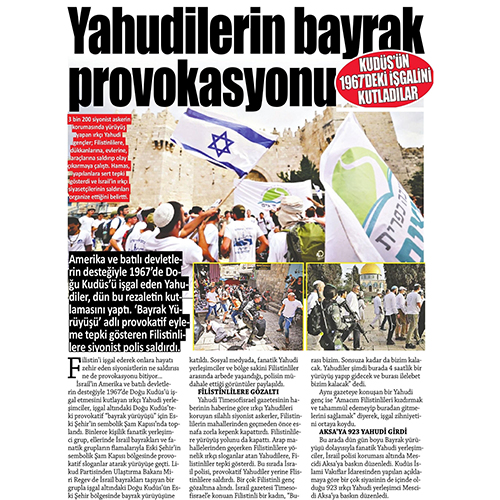 19 May 2023 |
16. Yeni Akit, “Flag provocation by the Jews” |
1 Republic of Turkey Ministry of Interior Precidency of Migration Management "ULUSLARARASI KORUMA". archieve.today. June 14, 2023. https://archive.md/SuW1j#selection-3039.0-3039.19.

This project is financed by the European Union.


